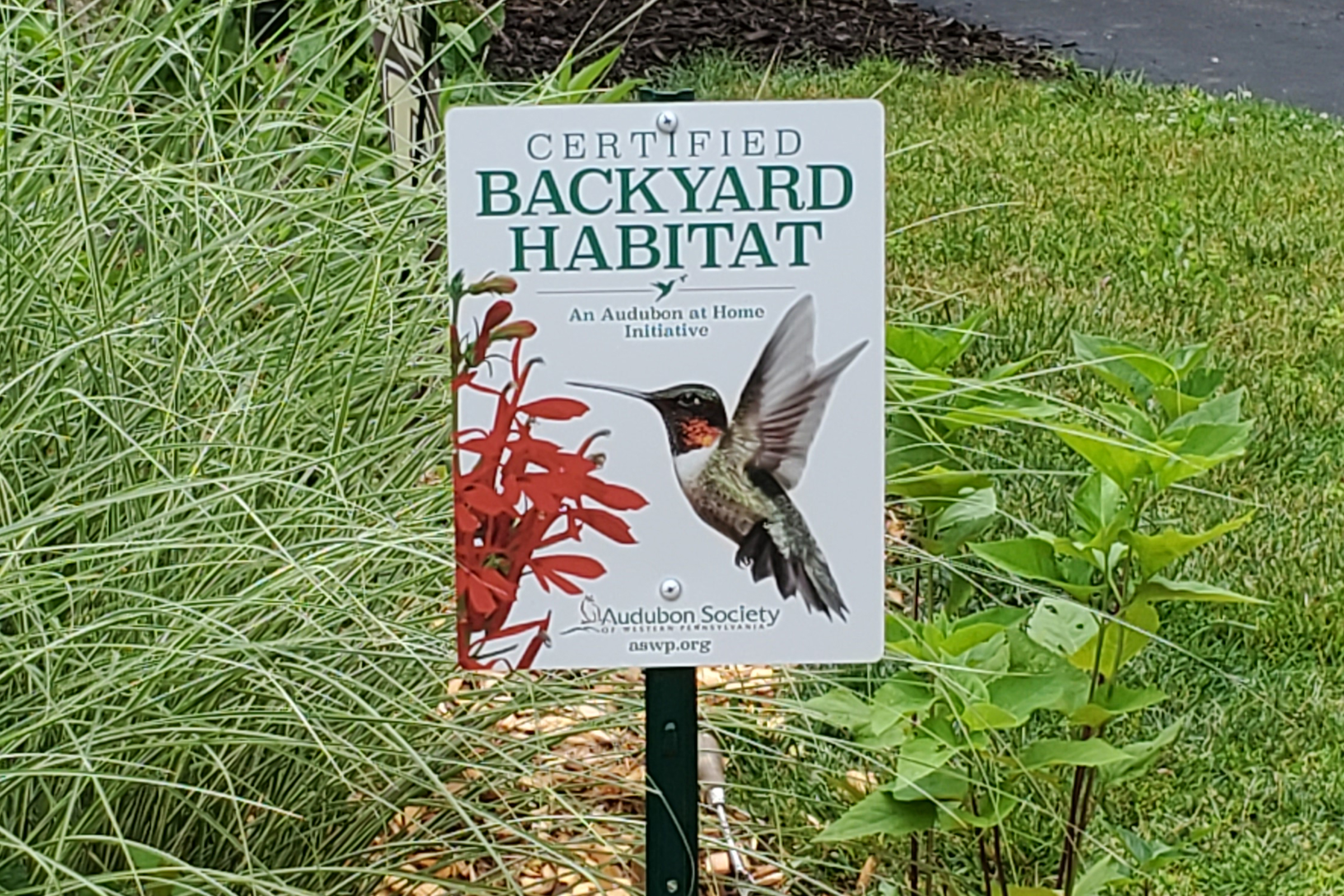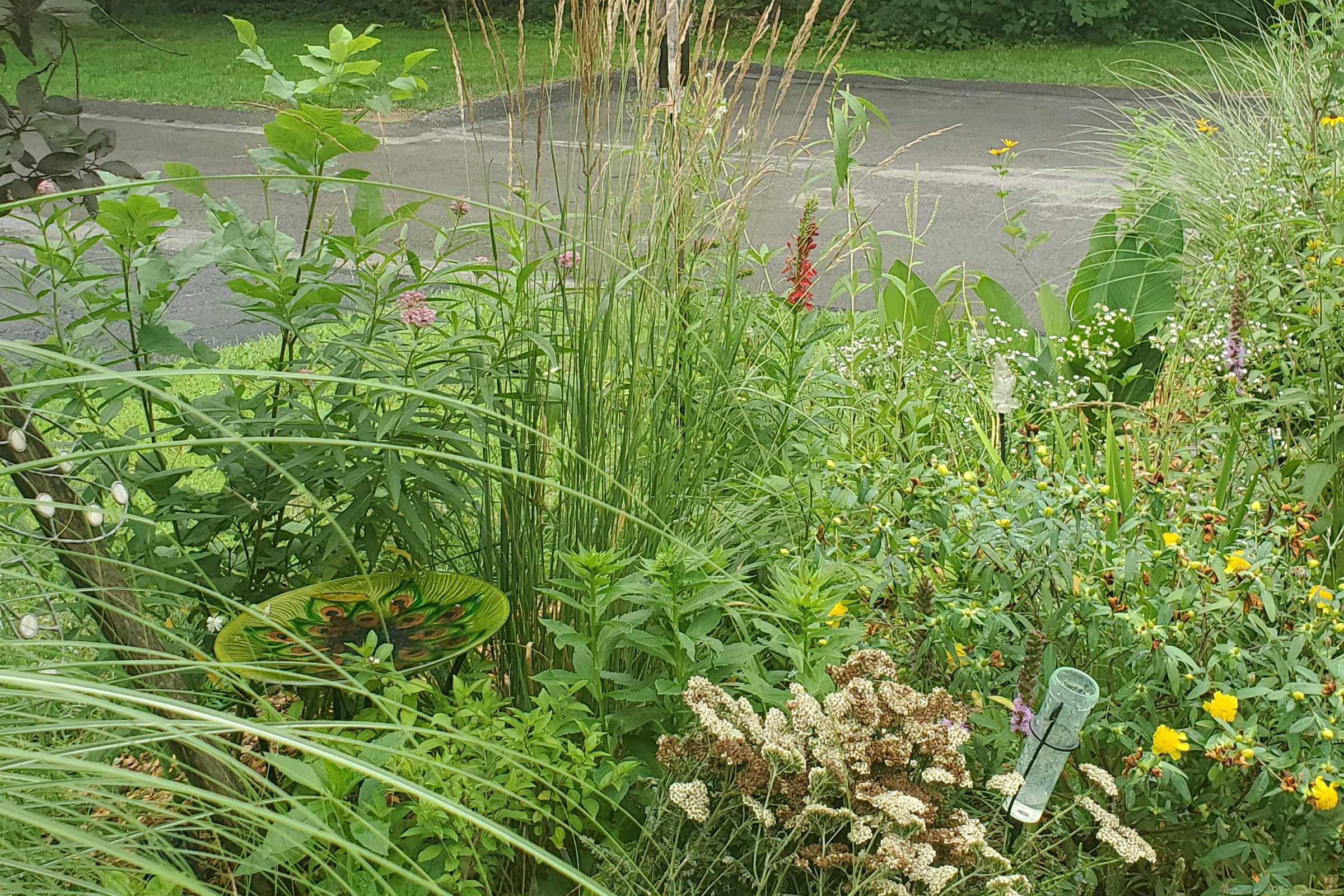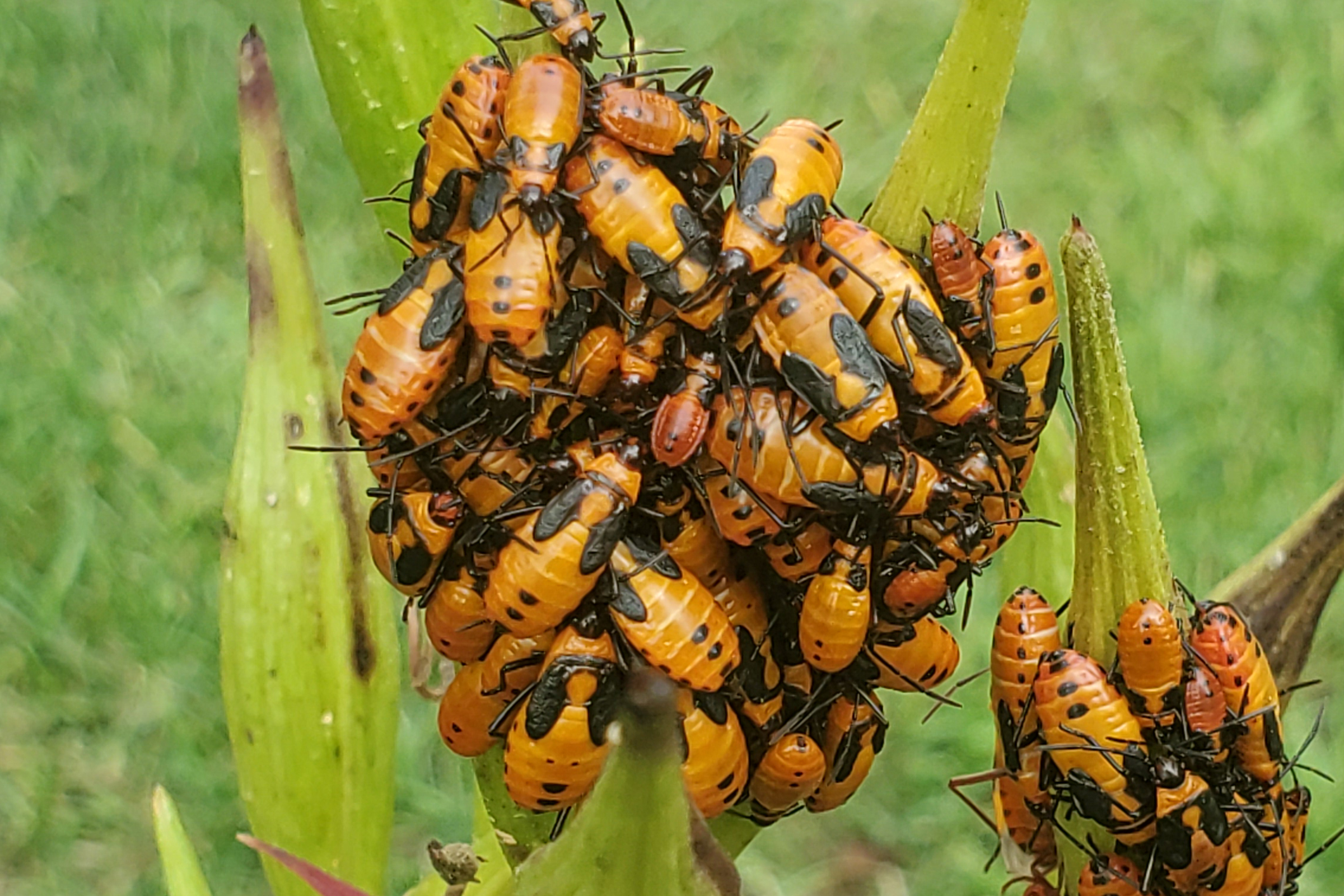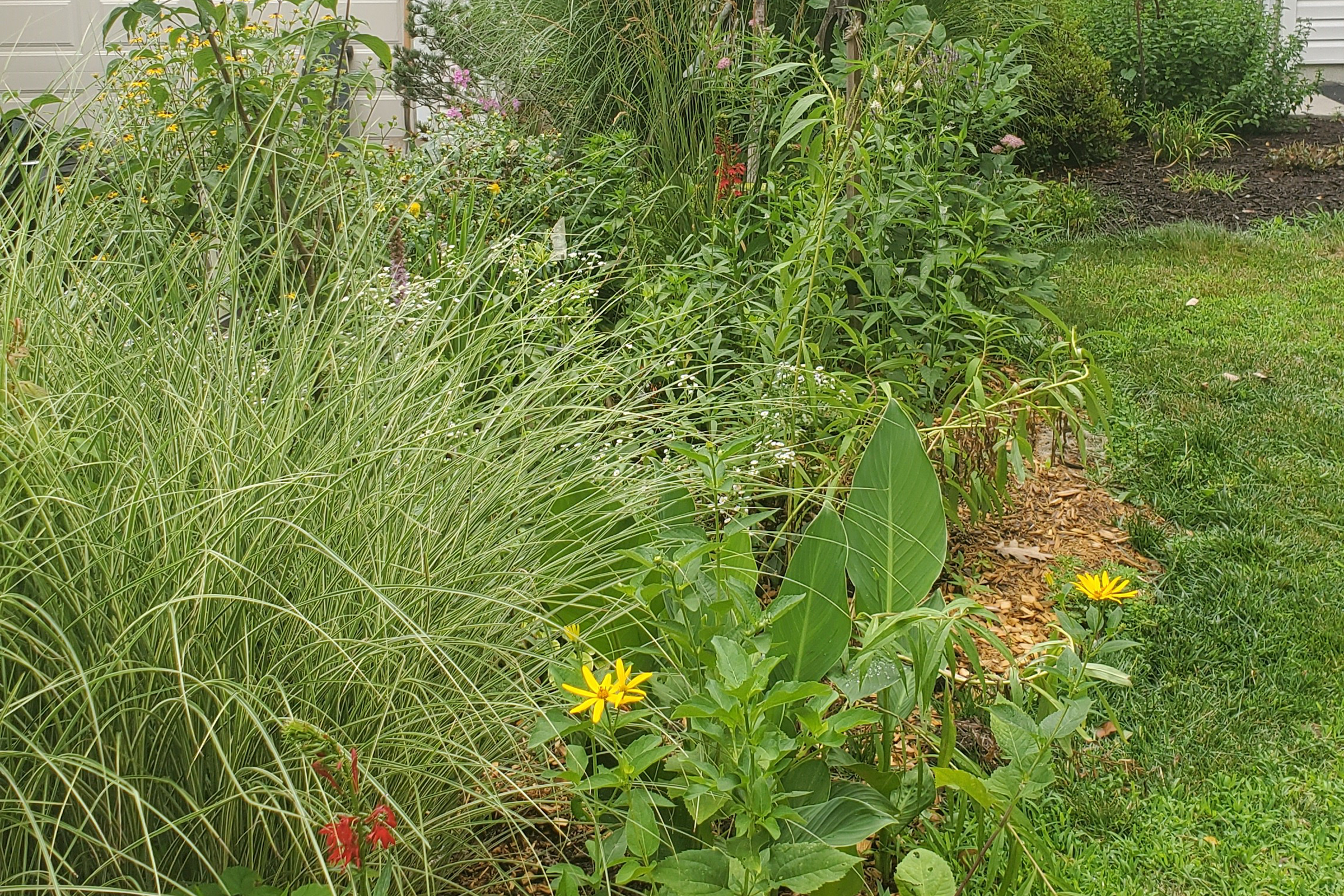Blog

Small Gardens, Big Impact: Native Micro-Garden
"Through a series of simple actions, your yard or patio can serve as a mini nature reserve that will provide important habitat and food sources for birds, pollinators, and wildlife." – Audubon Backyard Habitat program. Read more about how this program is implemented locally in our latest blog post.

Drew Richards' garden is located in the front yard of his town house. It is roughly 25 feet by 5 feet, so it is tiny, but has a great impact on the local ecology. Drew’s yard is packed full of native plants that provide a nice waystation for passing birds, bees and butterflies and other animals living in the nearby nature preserve. Drew sees deer, fox, turkeys, bluebirds, woodpeckers, hawks and heron. His yard helps to support the many wildlife that live nearby.

When he first began gardening at his home 19 years ago he wanted to create something different than the typical suburban plantings. He removed the invasive barberry (which can harbor ticks!) and all of the lawn in the front yard. He worked closely with the Audubon at Beechwood Farms to earn the Habitat Guardian level in their Certified Backyard Habitat program.

Drew’s garden is full of native plants that bloom throughout the year so there is always something colorful and interesting to look at, plus local pollinators have pollen and nectar from spring to fall. A service berry provides edible fruit which the birds also love. Swamp milkweed, bee balm, blazing star, black eyed Susan, Joe Pye weed, and lobelia provide food for bees and butterflies. And columbine attracts hummingbirds and sphinx moths. Drew also uses some traditional ornamental plants such as hostas and lamb’s ear.

In addition to the dense planting of native plants, the garden has two bird baths and bird feeders to further attract feathered friends. Drew manages the garden organically without the use of synthetic chemical fertilizers or pesticides. He uses proper watering techniques to conserve water use. We love how many plants Drew was able to fit into a small space.
Learn more about Audubon’s Backyard Habitat Program.
Photos © Drew Richards

